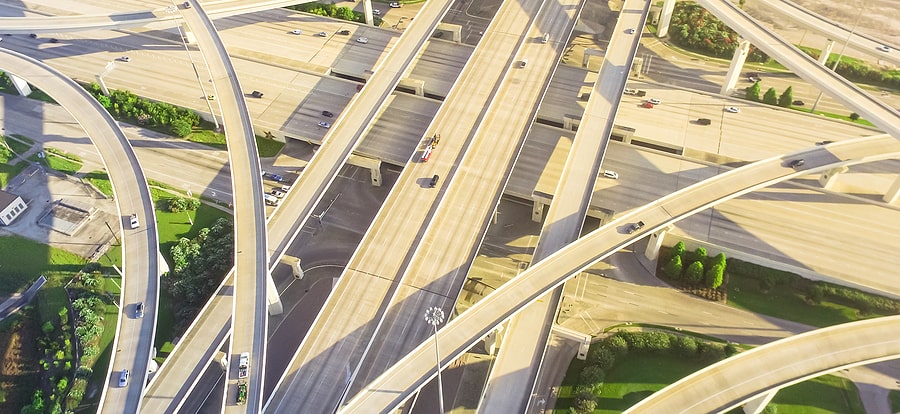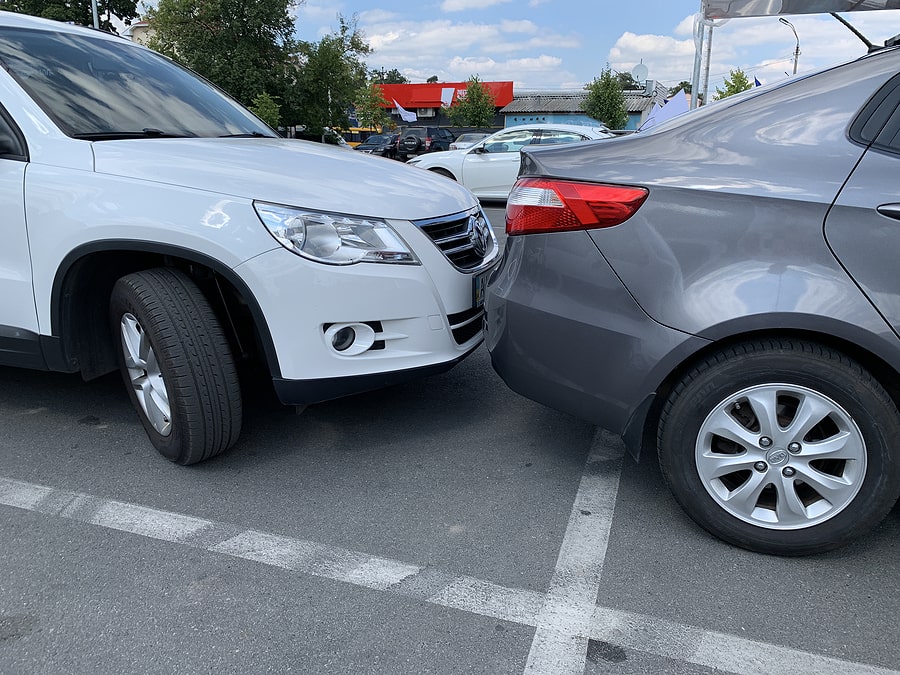Houston is a big, bustling city, but it’s also an eternal work-in-progress, thanks to frequent roadwork.
In our metropolitan melting pot, Houstonians are known for their pride. One label we might not be so proud of, however, is that of “deadliest major metro area for drivers in the country.” Look no further than reddit for proof of our aggressive habits. A quick glance at the forum brings up a plea from an out-of-towner: “What the hell is it with Houston drivers?” Over 600 comments and anecdotes follow.
Driver errors are responsible for most car accidents. Bad behaviors like speeding, rolling stops, and distracted driving put people in danger every day.
But there’s more at play here.
In order to answer the question “why is Houston traffic so bad?” we must first answer another: “why are Houston roads so bad?”
Houston has over 16,000 miles of streets, ferrying more traffic than it ever anticipated. Houston also has more car accidents than any other city in Texas. Approximately a dozen people lose their lives in Houston car accidents each week.
Our city’s design is not without its flaws. The infrastructure around us is outdated, and it sometimes lays the groundwork for accidents waiting to happen.What exactly makes Houston traffic so dangerous? Below we take a look at some of the culprits.
- Long commutes. Around 80% of Houstonians drive an average of 30 minutes each way to and from work. More time spent on the road means more chances of getting into a car accident, and long commutes can also contribute to driver fatigue and irritability.
- Risky road regulations. In an attempt to move as many people as possible as quickly as possible, Houston’s roads are designed for maximum speed. In some areas – including portions of the Grand Parkway – the legal speed limit is a whopping 75 MPH.
- Poor law enforcement. Many politicians still remain staunchly opposed to automated enforcement methods. Texas state lawmakers have restricted use of speed cameras and video enforcement of red-light runners, and they’ve even banned sobriety checkpoints. Houston police officers wrote 41% fewer tickets in 2017 than they did in 2012, even though the number of vehicle miles traveled in Houston increased by 23%. To get more specific, Harris County issued 28% fewer speeding tickets in 2017 than in 2015, even though the county’s population had grown by 100,000.
- No space for cyclists or pedestrians. Let’s face it: the urban design of Houston favors cars over any other form of transportation. This forces cyclists and pedestrians to be closer to traffic than we’d like. The city has over 6,200 miles of road, but less than half of those miles have sidewalks, and Houston has fewer than 300 miles of on-street bike lanes. Texas bicycle accident deaths spiked 26% between 2017 and 2018, making this an issue in dire need of addressing.
- Dangerous by design. Houston drivers are still suffering from design decisions made decades ago. The tight curves of older freeway portions such as Loop 610 and Interstate 69 northeast of downtown force drivers to step on the brakes to avoid a barrier or railing. In merge lanes along frontage roads parallel to Interstate 10, you’ve got to keep an eye out for speeding cars that could appear from any direction. (9% of fatal crashes in the region occur on frontage roads.)
- Intersection confusion. Many spots along Westheimer and FM 1960 now sport a ton of shopping center entrances. From 2012 to 2016, 37% of crashes in nine Houston counties occurred at intersections like these. This represented more than 25% of all Houston fatalities.
- Roads in need of repair. It’s no secret many Houston streets are dotted with potholes and haphazard asphalt patches. Our roads have several issues in need of some TLC, from faded lane markers to poor drainage. It’s a catch-22, though, as drivers are also inconvenienced by…
- Road construction. Locals often joke that the construction here is perpetual. Its unpredictable nature brings traffic to a crawl while also setting the stage for plenty of accidents. Road work on Richmond, west of Post Oak near the Galleria, is an especially notorious problem, and detours make those long commutes even more frustrating.
- Outdated construction. Many roads are old, outdated, and overwhelmed by the region’s booming growth. The ramps at Loop 610 and Interstate 69, for example, were built in 1979 and only renovated once, in 1999. As such, they are sharper than current construction standards would permit.
- “Farm-to-market” roads. Suburban development has changed how we use farm-to-market roads. Drivers zooming along FM 1960 now find themselves slamming on the brakes to avoid rear-ending people who are making sudden turns into residential or commercial spaces. This causes fatal wrecks. FM 1960 alone sees more than 60,000 vehicles per day and about a dozen deaths per year.
- The woes of Westheimer. Yep, this 19-mile-long road gets its own bullet point. The four-lane road starts in the congested Midtown area and opens wider farther west. The street carries approximately 74,000 vehicles a day. As Westheimer stretches downtown, its “slow lane” becomes so absurdly narrow that many drivers refuse to use it at all. This forces larger vehicles such as buses to use both lanes. (In fact, the Metropolitan Transit Authority instructs its drivers to “straddle for safety” along Westheimer.) However, Westheimer’s most severe accidents occur outside Loop 610, where it is newer and wider. Westheimer averages nearly four fatal crashes annually between Loop 610 and Highway 6, where the road’s volumes are heaviest. In 2005, the Texas Department of Transportation controversially added long medians to separate eastbound and westbound traffic in an effort to limit sudden turns. Now traffic flows better… but also faster. Emboldened by the opportunity for a straight shot, drivers speed from one intersection to the next.
So how do we stay safe? Residents fear change and often oppose any proposed modifications to streets in their areas, but our city is making progress, slowly but surely. When the MTA rebuilt Scott Street for light rail lines, it finally took pedestrians and bikers into consideration. Wider sidewalks have also been added to Shepherd.

There’s more hope on the horizon in the form of a proposed $7 billion rebuild of Interstate 45. The project aims to remove many of the downtown freeway system’s tightest turns and high-pressure mergers, which TxDOT consultants say lead to crashes and traffic.
When all is said and done, behavior still matters. Together we can break the stereotype of Houstonians as aggressive drivers. Every one of us has a responsibility to keep our road rage in check, to obey traffic laws, and, most importantly, to stay vigilant on the unpredictable roads running through the city we call home.
Should you ever find yourself in a car accident, you can count on the team at Stewart J. Guss to help. We’re dedicated to finding the negligent party and holding them accountable, whether they’re a distracted driver, a corporation, or a city road crew. Contact Stewart J. Guss, Attorney at Law today.





